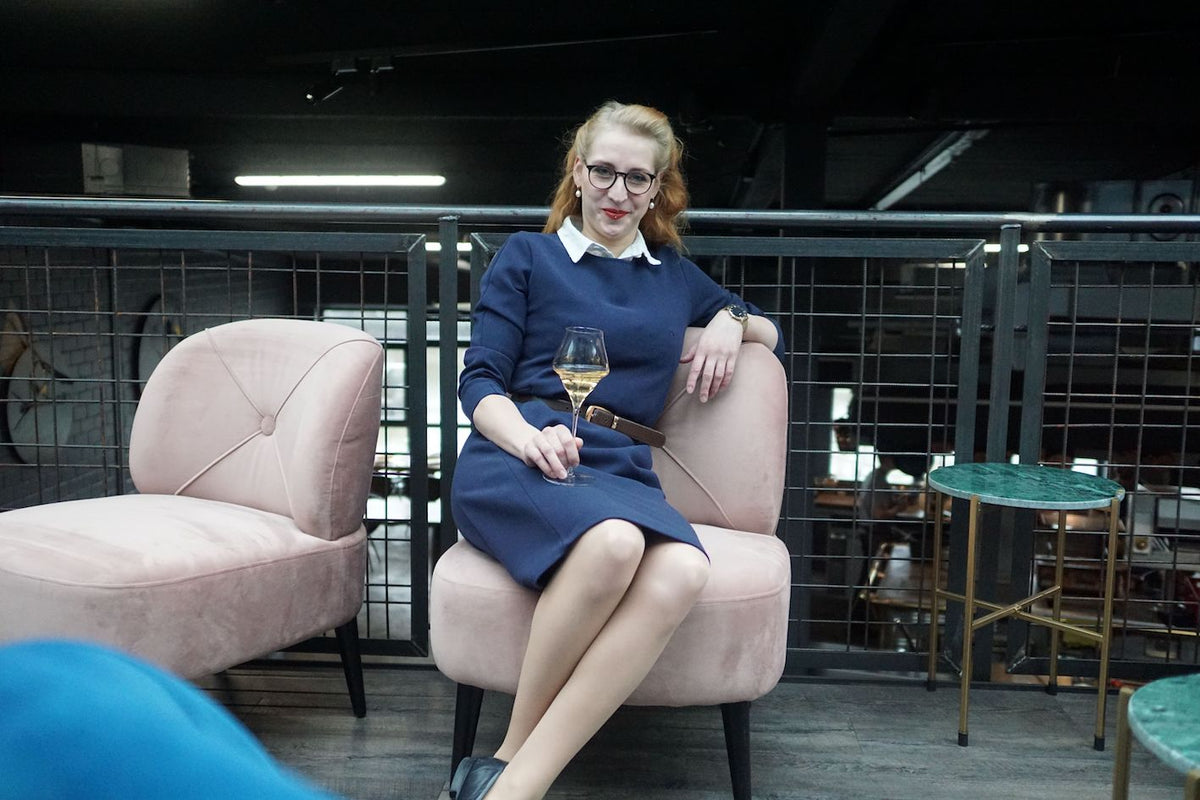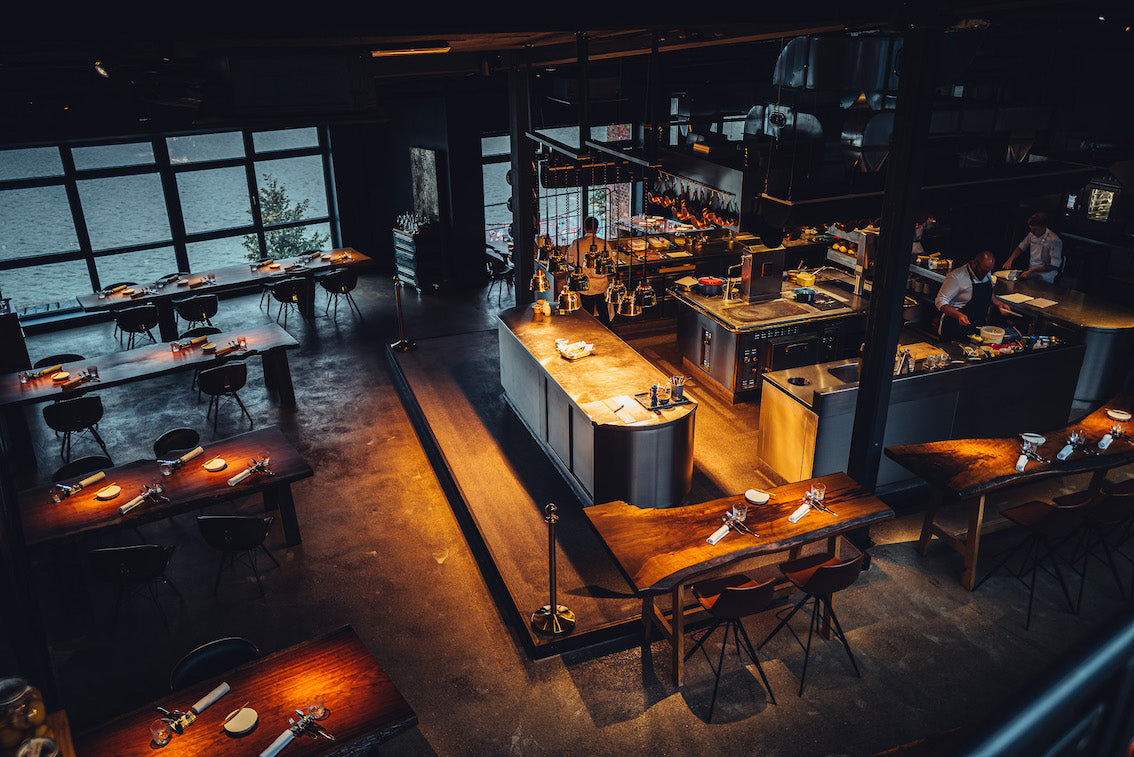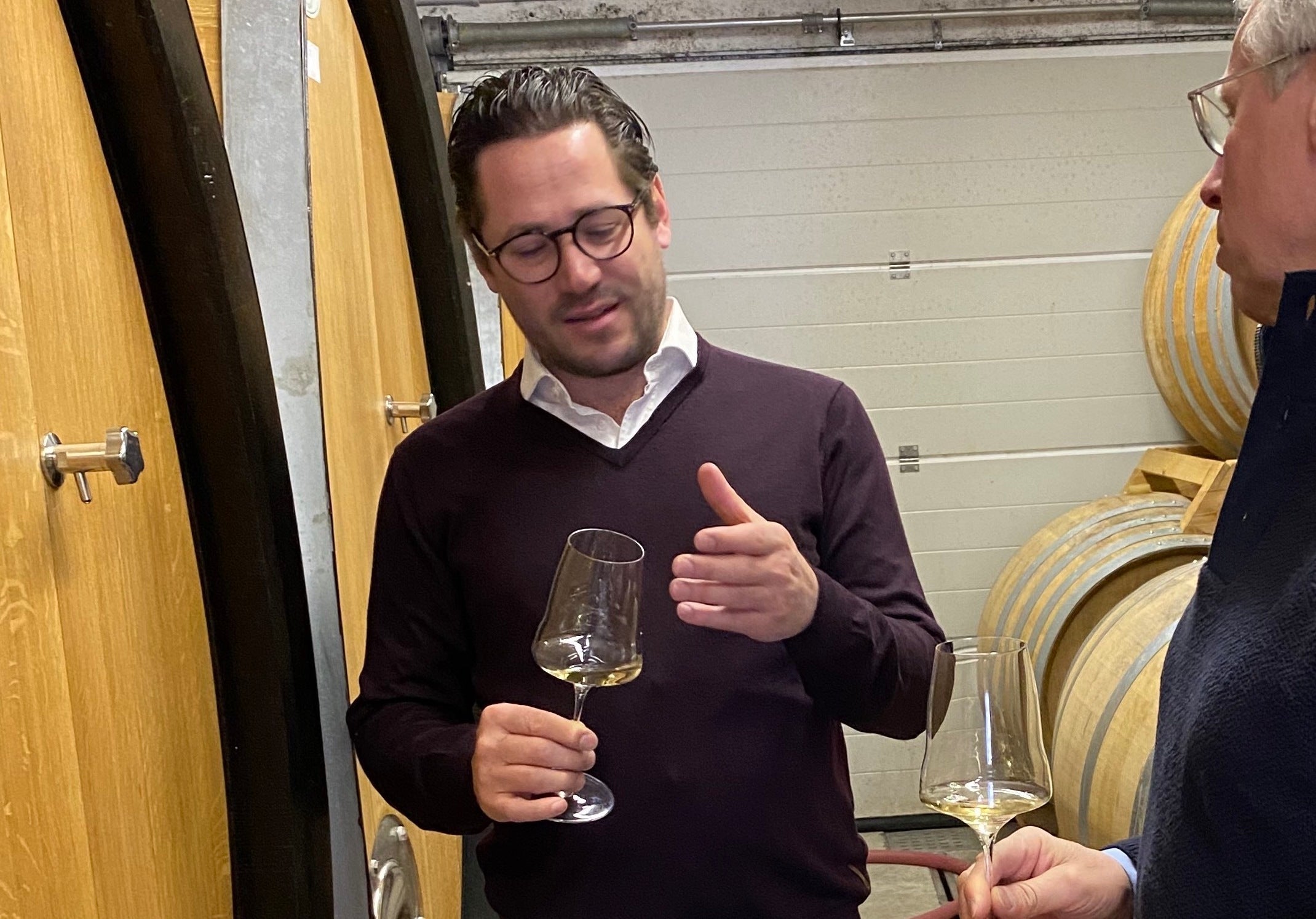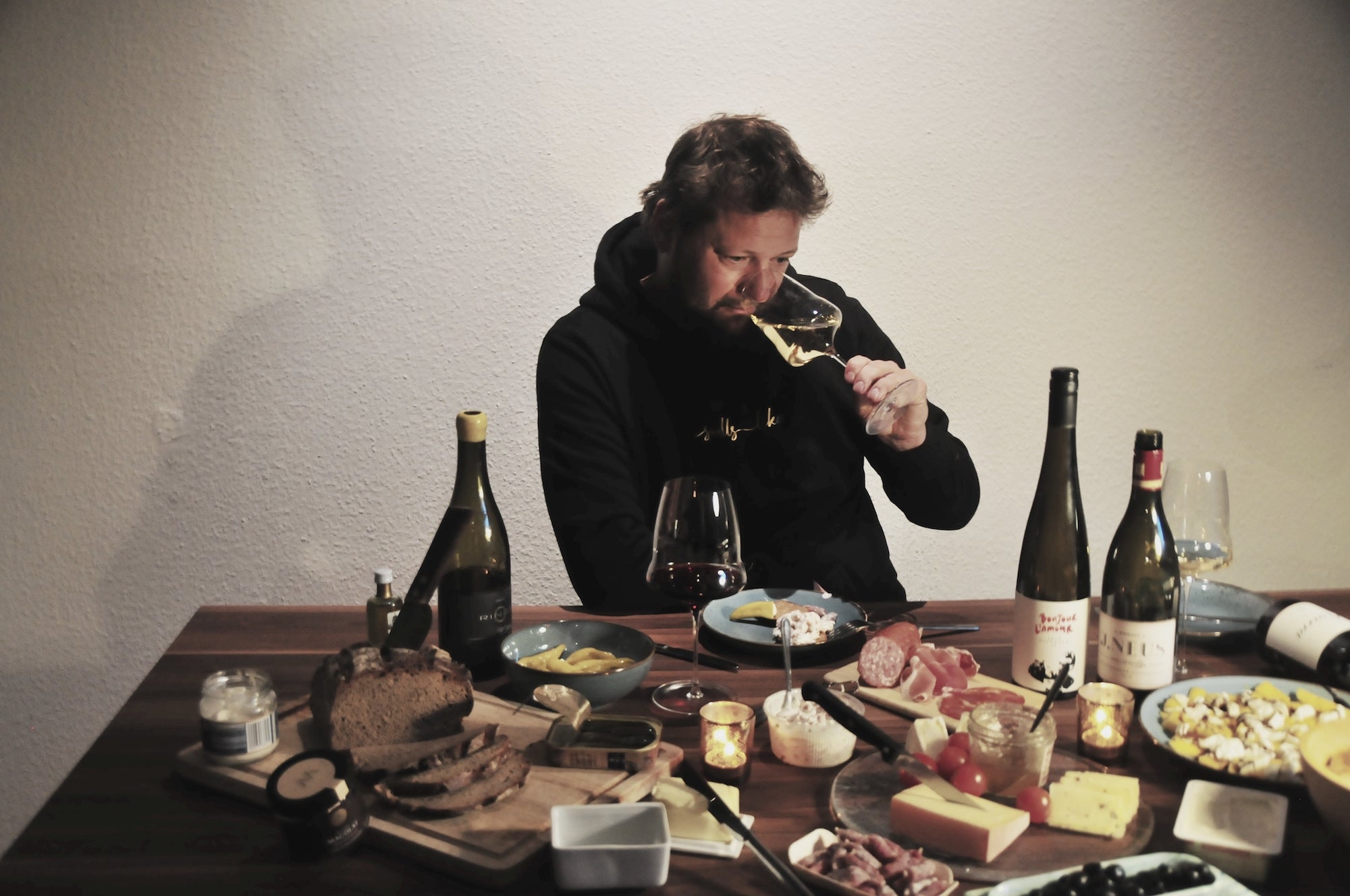100 stands for the cooking temperature, 200 for the temperature of the oven. But 100/200 is more than just six numbers. It is a restaurant that pushes the boundaries of the rather conservative Hamburg culinary scene.
Anyone who wishes to be a guest at this Michelin-starred restaurant has to venture to the outskirts of the city, to a place that even taxi drivers often do not know. Once you reach the somewhat uninviting building, you ring the bell and take the lift up to the third floor.
What awaits you, is a large room with an enormous Molteni stove right in the middle. The ambience draws on an industrial charm, countering it with fine craftsmanship.
Sophie, together with Thomas Imbusch, you run a restaurant that is quite extraordinary for Hamburg. How would you describe the concept?
What was important to us when we developed the concept for the 100/200 was that here, you can simply enjoy yourself, without necessarily having a trained palate.
To us, this means we offer traditional hand-crafted cuisine, using fresh, regionally sourced products. W place the emphasis on regional cuisine, and also the so-called from nose to tail, which means using every part of the animal. We don't broadcast this, but if you look in our rubbish bin, you will hardly ever find anything there. We recycle everything that we buy and due to the fact that we always know exactly how many guests are coming, we are able to cook the food in very precise amounts.
Each year you offer four thematic areas according to the season. Doesn't that get a little boring for you as a sommelier?
Quite the opposite. These themes come in phases. For example, now, in early spring, they're about water & salt and whatever you find in rivers, lakes and the sea. The creative part is that Thomas decides each morning in the kitchen what changes will be made to the ingredients listed in the evening menu. This is quite exciting and challenges me as a sommelier and as the hostess. It's meant to be an interplay between cuisine and drinks. And if that were boring, we simply wouldn't have done it.
What particularly attracted you to get involved in this project?
Actually, it was this very concept. When a friend introduced me to Thomas Imbusch in 2017, I had already given up my apartment and wanted to move to France. Thomas then convinced me to stay, because he already had a large part of this concept developed in his head and was about to leave Tim Mälzer's Off-Club.
It was also a great challenge to run the restaurant on our own from the beginning. I had never done that before. It was new territory, and it was great fun. It became clear towards the final phase of the Off-Club that it was going to work out between Thomas and I, although he didn't make it easy for me. But that was good, it helped us find out if it would really work.
What role has wine played in the concept?
It was clear from the beginning that the wine list should mirror the concept of the cuisine. I don't buy anything that is available en masse. Nor do I buy anything with a big name on it. It's more about making new discoveries.
Here, so-called natural wines play a significant role, which Thomas was initially sceptical about. But I quickly convinced him that natural wines are a wide field and that there are fantastic wines to discover. I also bring them to the guests, without overemphasising the term. It's the same with regionality or nose to tail. You don’t always have to know all the details in advance, you can just try things out.
Isn't that difficult in Hamburg? The city is considered the stronghold of Grauburgunder consumption...
Yes, we also need simple, accessible wines here. But they should be well-made. We need something that creates consensus. After all, not only do a lot of young people come here, but we also have the classic Hamburger Pfeffersäcke (bourgeois Hamburg businessmen) and everything in between. There is a very diverse range of clients.
We need something that can surprise the guests. There is often a lack of clarity: What do I like? So, what do I really like? And the guests here are more open than most to exploring something new. After all, they’ve already overcome so many inhibitions; from the ticket system to the remote location, to the unknown menu... so they also allow themselves to embark on an unknown journey when it comes to the accompanying drinks. At least 60 % of the guests decide to give in to this experience every night. There are also evenings where it is 100 %. Those who prefer not to, can choose something from the menu. All the bottled wines we offer can also be tried by the glass.
You've chosen to use the Josephine wine glass at 100/200. What role does the glass play for you?
A big one. Because in this restaurant there is a large contrast between the dining room with the stove and the tables, where everything is quite large, and all the tableware, which is delicate, almost fragile. That’s important to me. The Robbe & Berking silver cutlery is fine, as is the porcelain from Hering Berlin and so are the Josephine glasses. All this plays an essential role. The fine spoon, how does it feel on the tongue?
"What I like so much about the Josephine glass is its lightness. The way it meets the mouth is simply outstanding."
Sophie Lehmann
This demands a greater attentiveness, which is, so to speak, immanent in the glass. This is also passed on to the wine and that is what I love about it. In addition to this the glass is absolutely stable. We have only had one broken glass so far. This was not the case with any other thin-walled glass I have ever worked with.
The only thing that was completely unfamiliar at first were the glass' optics. With its ring, its bend, its form is quite unusual. But you become accustomed to it, because it's one of the great qualities of this glass.
What is the strength of this glass?
The wine simply presents itself magnificently, displaying everything it has to offer; without becoming rough, because the glass doesn't divide the aromas. In fact, quite the opposite.
"The wine is transparent, yet the glass combines the aromas very harmoniously. I find this most impressive in the sparkling wine glass. Sparkling wines acquire a complexity that I have never experienced with any other glass."
Sophie Lehmann
Accordingly, we have included the sparkling wine glass as the aperitif glass for the wine accompaniment. We use the other Josephine glasses when guests drink from the wine bottles on the table or when they bring their own wines to us, which is also a possibility.



